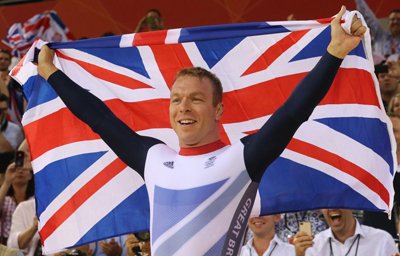Nurture the inner athlete
 So the British are good at sports – or at least some British are good at some sports. Best in the world, even. For a nation which does not boast of sporting prowess too easily and has seen its best hopes dashed too often, the “golden summer” of the London Olympics has been a timely antidepressant, countering very bad news on the economy.
So the British are good at sports – or at least some British are good at some sports. Best in the world, even. For a nation which does not boast of sporting prowess too easily and has seen its best hopes dashed too often, the “golden summer” of the London Olympics has been a timely antidepressant, countering very bad news on the economy.
The short-term evidence suggests that many British people, inspired by the outstanding performance of British sporting heroes, have been out discovering their inner athletes in the roads and fields around where they live, adding a component to their identity that perhaps they did not know they had. This new awareness of who they are needs serious reinforcement if it is not to wane as the days grow shorter.
But ministers are still cowering in the changing room, unsure whether to join in or not. Only this week it was revealed that the Government had cancelled a measure from the previous Labour Government requiring schools to provide children with two hours of physical activity a week. The government move was said to be aimed at cutting bureaucracy, which must rate a gold medal for fatuity. Presumably the selling off of school playing fields, which also goes on apace, could be similarly justified. Those who espouse the doctrine of the small state have yet to learn the lesson of London’s Olympic Park – that there is a vital role that only Governments can play, and market forces, whatever they are in this context, cannot deliver medals.
One of the most financially lucrative sports regimes in the world, English Premier League football, was unable to nurture a Great Britain team good enough to progress past the Olympic quarter finals. What sportsmen and women need are facilities, encouragement from an early age, expert training and coaching, and a climate that breeds excellence. Financial rewards are incidental.
As any general would say, one should reinforce success on the battlefield, not failure. That means examining the national identity to see what are its strengths, and pushing forward with reinforcement at those very points. Sport is one such; but Britain can also claim a world leadership role in a host of other areas, which are where its strengths also lie. Music of all kinds is another, as is theatre. Such activities fit well with the flourishing multi-cultural society that Britain is becoming, though they are not necessarily where the highest profit lies. They are good for character building, but do not impose one single stereotype of what it means to be British. Like sport, they start at school; like sport, they will suffer if the Government goes too far with its stress on basic academic achievement.
The Prime Minister mis-spoke when he suggested the British teaching profession was against competitive sports on the grounds of political correctness. Many of the British Olympic medallists had a personal story to tell of how their talent was spotted at school – often a typical state comprehensive school. Nurtured over the years by dedicated teachers, they were helped to become the best athletes they could be.


 Votes : 0
Votes : 0









